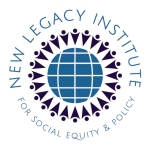In the last few years, we’ve seen documentaries about the childfree choice come out and more in production. Take Laura Scott’s film, The Childless by Choice Project and Magenta Baribeau’s Maman? Non merci! (No Kids For Me, Thanks!). These films include interviews with childfree men, women, couples, and experts speaking to aspects of this choice, and society’s trouble accepting it. Filmmaker Maxine Trump is well into production of her documentary, To Kid or Not to Kid, and is taking a different approach.
I am an advisory consultant to Maxine on the film, which takes us on her own personal journey, while addressing social and cultural issues regarding the childfree choice. Filmmaker Therese Shechter is also working on her documentary, My So-Called Selfish Life, and hopes to complete the film in a couple of years.
On to Narrative Feature Film
Filmmaker and script writer Zoe Kennison also has a film in the making. Hers is a narrative feature film titled Easy-Bake. When interviewed by Melissa Buelt, Kennison describes how she has noticed that women are often asked when, not if, they are going to have children, and how this is “the opposite for men.” When it comes to men and women saying they may not want children and being told they will change their mind or regret it, Kennison sees a “very bizarre double standard.”
In talking with hundreds of childfree men for over 15 years now, I’d say while women are asked the “when” not “if,” and get the “change your mind” and “regret” comments more than men, plenty of childfree men get both as well. This is not to say there isn’t a lot to explore regarding differences in how childfree men and women are treated.
In Kennison’s film, she draws on her own personal story to create the narrative about Ivan, (played by Kennison), a 22-year-old college student “who gets told that she only has one year to conceive a child during the busiest time of her life” and struggles with “the underlying pressure of the sexist assumption that all women want children.”
There is another character, Jo, played by Kennedy Baldwin, who relates to the story because she is unsure about having children herself, and knows from her own experience the pressure people put on her about having kids. She is also a person of color, which adds to the point that this is not “just a white woman’s perspective.”
Kennison wants to “reach women who have been met with hostility when they have expressed the desire to be childfree” through narrative feature film. Kudos to her. I am thrilled to see filmmakers pursuing documentaries and now narrative feature films on childfree and pronatalist issues. In the words of writer and editor Jessa Crispin, narratives can “change consciousness by changing the story you tell yourself.” When it comes to childfree and pronatalist issues, films have the power to change the stories people tell themselves about parenthood and reproduction, and as a result, help nudge the progress of social and cultural change.
Here is to more of this on the silver screen~!



